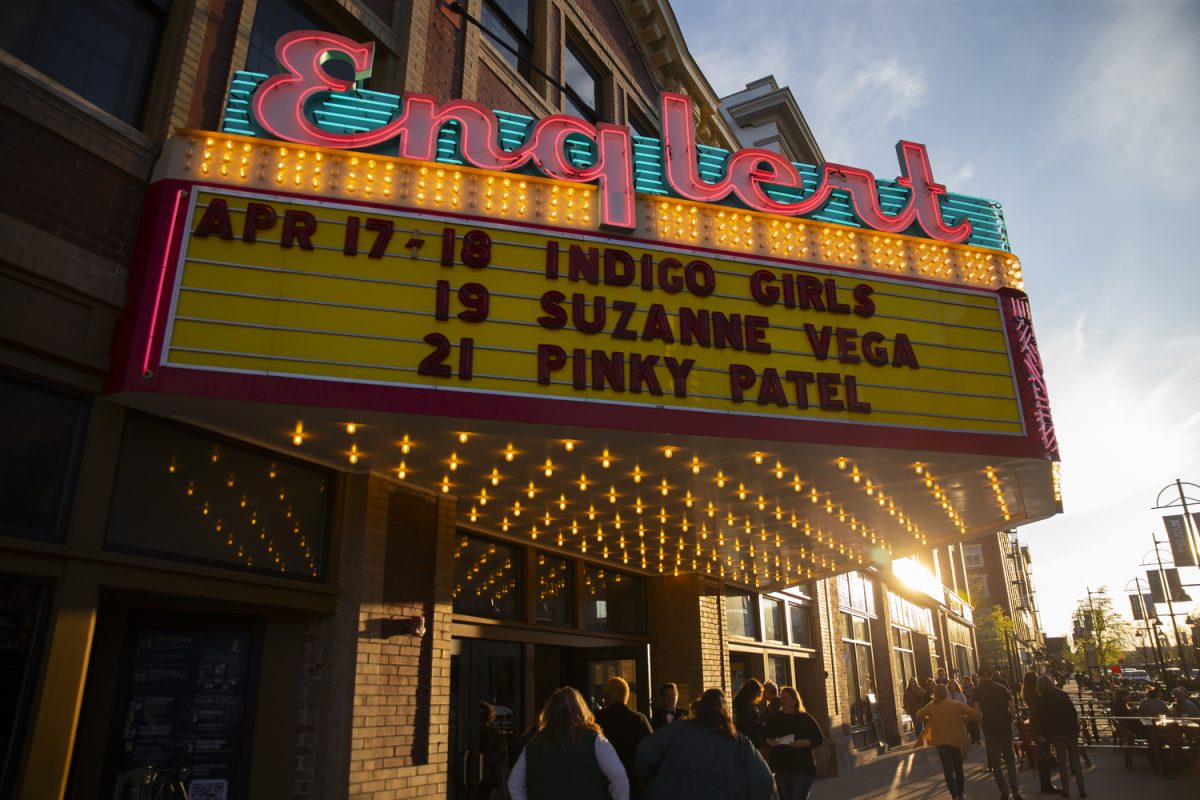The Englert Theatre kicked off its new series of disability inclusion events with a disability community social event at The Green House Friday afternoon.
Whit Martinez, community engagement coordinator for The Englert, said this event is the first of three to be hosted this year.
“It’s to create space for folks from the disability community to come together, create a safer space to converse about disability,” Martinez said.
The next two events, Martinez said, are not yet planned, as she hopes to connect with community partners with a primary focus on serving or advocating for people with disabilities.
The Friday event featured visual artist and community organizer Talya Miller, who introduced a poetry exercise inviting the group of around 20 attendees to write or collage a free-form poem about what disability and inclusion mean to them using only seven words.
“Existing with disabilities can come with a lot of big emotions,” Miller said.
Miller described the Iowa City community as one that is enthusiastic about physical activity but noted this emphasis often comes with ableism — a form of discrimination that marginalizes people with disabilities by valuing certain physical abilities over others.
“It’s generally not intentional, but that doesn’t mean it doesn’t come out,” Miller said. “This [event] is a soft way to get folks invested and interested in being inclusive.”
While restrictions on diversity, equity, and inclusion, or DEI, initiatives have been a major topic in the news since President Donald Trump took office, Miller said individuals with disabilities are often left out of that conversation.
Executive Order 14173, which Trump signed the day after his inauguration, called for a sweeping review of federal programs and policies related to DEI and DEIA — diversity, equity, inclusion, and accessibility.
Miller emphasized the widespread impacts DEIA cuts will have on the millions of Americans with disabilities. According to data from the Centers for Disease Control, in 2022, more than a quarter of American adults — over 70 million people — reported having a disability.
“And it’s not always visible,” Miller added, emphasizing many disabilities aren’t immediately apparent to others.
Before an injury in 2020, Miller said much of her community organizing focused on advocating for the plus-size community and body acceptance. When she hurt her back hiking nearly five years ago, resulting in four herniated discs and limited function in her right leg, Miller began using her background in community organizing to promote inclusivity for people with disabilities.
“There’s a lot of parallels between how fat folks and folks with disabilities are treated,” Miller said. “So, suddenly being both is how I got into body politics.”
Another aspect of ableism, Miller said, is a preconceived notion often held about people with disabilities not enjoying or being capable of physical activity. Defying that stereotype was attendee Angela Chapman.
Chapman, who uses a wheelchair, said one of her favorite hobbies is adaptive rock climbing, which uses specialized equipment and techniques to accommodate people with physical disabilities. She said she uses the climbing wall at the Campus Recreation and Wellness Center.
A second year Ph.D. student at the University of Iowa, Chapman said the accessibility at the UI is slightly better than it was at the University of California San Diego, where she earned her undergraduate degree. However, she said there are several ways the UI campus could be more accessible, specifically the placement and maintenance of wheelchair ramps.
“It can be a safety concern,” Chapman said. “I don’t feel safe going up and down [certain ramps].”
RELATED: Accessibility concerns prompt campus-wide petition
Chapman said many Iowa City businesses could improve by installing elevators and other accessibility measures to better accommodate people with disabilities.
“Even just widening doors to where it’s more open,” Chapman said, noting it’s difficult to navigate her wheelchair through narrow spaces.
The Friday event, Chapman said, was her first time attending a meetup for people with disabilities — and it’s something she said she hopes to see happen more often.
“Just places to meet other folks with disabilities,” Chapman said. “Especially during winter, it can be quite isolating.”



